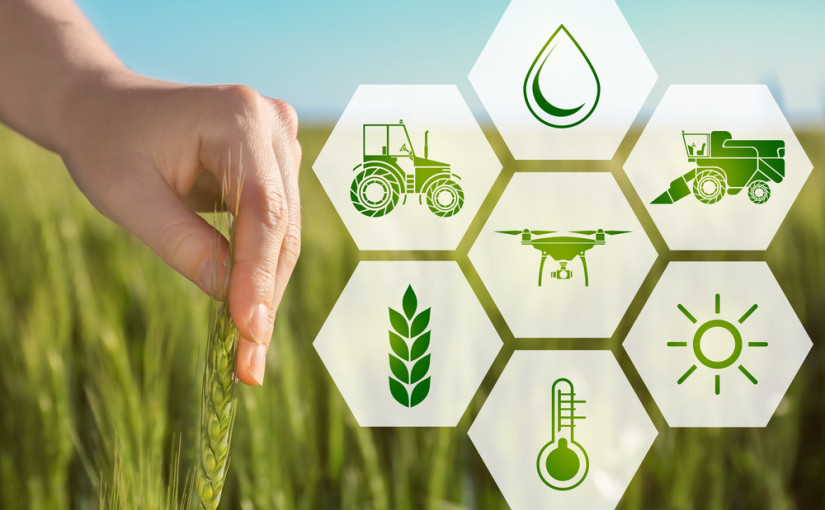In recent years, concerns about food safety have become more pronounced, with consumers demanding greater transparency in the food supply chain. The agricultural industry is recognizing the need for robust traceability systems to track the journey of food products from farm to fork. Blockchain technology has emerged as a powerful solution to address these concerns, offering a transparent and tamper-resistant platform for traceability. This article explores the significance of blockchain-based traceability in agriculture and its role in ensuring food safety.

The Need for Traceability in Agriculture:
Growing Globalization of the Food Supply Chain:
As the global population continues to rise, so does the demand for food. The agricultural supply chain has become increasingly complex and globalized, involving multiple stakeholders, from farmers and processors to distributors and retailers. This complexity makes it challenging to trace the origin of food products, creating potential vulnerabilities in terms of safety.
Increasing Concerns about Food Safety:
Foodborne illnesses and contamination incidents have raised awareness about the importance of implementing effective traceability systems. Consumers want to know where their food comes from, how it was produced, and whether it meets safety standards. This demand for transparency has put pressure on the agricultural industry to adopt advanced technologies to track and trace the entire supply chain.
Understanding Blockchain Technology:
Basics of Blockchain:
Blockchain is a decentralized and distributed ledger technology that records transactions across a network of computers. Each transaction, or block, is linked to the previous one in a chronological chain, forming a secure and tamper-resistant record. This technology eliminates the need for a central authority and provides transparency, security, and immutability.
Key Features of Blockchain Relevant to Traceability:
- Immutability: Once data is added to the blockchain, it cannot be altered or deleted. This ensures the integrity of the information recorded, making it a reliable source for traceability.
- Decentralization: Blockchain operates on a decentralized network, meaning there is no single point of control. This reduces the risk of fraud and manipulation, enhancing the overall security of the traceability system.
- Transparency: All participants in the blockchain network have access to the same information. This transparency builds trust among stakeholders and allows for real-time monitoring of the supply chain.
Implementing Blockchain-Based Traceability in Agriculture:
From Farm to Fork: Tracing the Journey of Food Products:
- Farm-Level Traceability: Blockchain technology allows farmers to record critical information about their produce, including planting dates, cultivation practices, and use of pesticides or fertilizers. This data is stored in a secure and unchangeable manner, providing a reliable source of information about the origin of the food.
- Processing and Packaging: As the agricultural products move through processing and packaging stages, each step is recorded on the blockchain. This includes details about the facilities involved, quality control measures, and any additives introduced. This end-to-end traceability ensures that any issues can be quickly identified and addressed.
- Distribution and Retail: Blockchain facilitates real-time tracking of products as they move through the distribution and retail channels. This allows retailers and consumers to verify the authenticity and safety of the food products on the shelf, promoting confidence in the supply chain.
Smart Contracts for Automated Compliance:
Smart contracts, self-executing contracts with the terms of the agreement directly written into code, can be integrated into the blockchain. In the context of agriculture, smart contracts can automate compliance with safety standards and regulations. For example, if a batch of produce fails to meet certain quality criteria, the smart contract can trigger alerts and prevent further distribution until the issue is resolved.
Benefits of Blockchain-Based Traceability in Agriculture:
Enhancing Food Safety:
- Rapid Response to Contamination: In the event of a contamination or foodborne illness outbreak, blockchain enables quick and precise identification of the source. This facilitates targeted recalls and minimizes the impact on consumers.
- Quality Assurance: Blockchain’s transparency ensures that every step in the supply chain adheres to quality standards. This reduces the likelihood of substandard or unsafe products reaching the market.
Building Consumer Trust:
- Transparency and Accountability: Blockchain’s transparency builds trust by providing consumers with access to accurate and unalterable information about the food they consume. This transparency also holds all participants in the supply chain accountable for their practices.
- Authenticity Verification: Consumers can use blockchain to verify the authenticity of organic, fair-trade, or other product claims. This fosters a sense of confidence in the authenticity of the food products they purchase.
Supply Chain Optimization:
- Reducing Fraud: Blockchain’s decentralized nature makes it difficult for bad actors to manipulate information for fraudulent purposes. This reduces the risk of fraud in the supply chain, ensuring the integrity of the traceability system.
- Streamlining Processes: The automation capabilities of blockchain, such as smart contracts, streamline processes and reduce the administrative burden associated with compliance and record-keeping. This results in a more efficient supply chain.
Challenges and Considerations:
Integration with Existing Systems:
Adopting blockchain-based traceability may require integration with existing systems and technologies. Compatibility challenges and the need for standardized protocols should be addressed to ensure seamless implementation.
Data Privacy and Security:
While blockchain itself is secure, the information fed into the system must be protected. Ensuring data privacy and implementing robust cybersecurity measures are crucial to prevent unauthorized access and potential breaches.
Education and Adoption:
The successful implementation of blockchain-based traceability relies on the understanding and cooperation of all stakeholders in the supply chain. Education and awareness programs are essential to encourage widespread adoption and cooperation.
Case Studies: Successful Implementations of Blockchain in Agriculture:
IBM Food Trust:
IBM Food Trust is a blockchain-based traceability platform that enables end-to-end visibility in the food supply chain. It has been successfully implemented by major retailers and food producers to enhance transparency and traceability.
Walmart’s Blockchain Pilot:
Walmart conducted a pilot project using blockchain to trace the journey of mangoes from farm to store. The technology allowed for real-time monitoring, reducing the time taken to trace the origin of the fruit from days to seconds.
Future Outlook:
Evolving Technologies:
Blockchain technology continues to evolve, with ongoing research and development focused on enhancing its scalability, interoperability, and sustainability. As these technologies mature, they will contribute to more widespread adoption of blockchain-based traceability in agriculture.
Global Standardization:
The development of global standards for blockchain-based traceability will play a crucial role in ensuring interoperability and harmonizing traceability systems across borders. International collaboration is essential to establish a common framework.
Conclusion:
Blockchain-based traceability in agriculture is a game-changer in ensuring food safety and transparency throughout the supply chain. By leveraging the unique features of blockchain technology, the agricultural industry can build a secure and reliable traceability system that benefits consumers, producers, and all stakeholders involved. As technology continues to advance and adoption grows, blockchain-based traceability is poised to become an integral part of the future of food safety.






